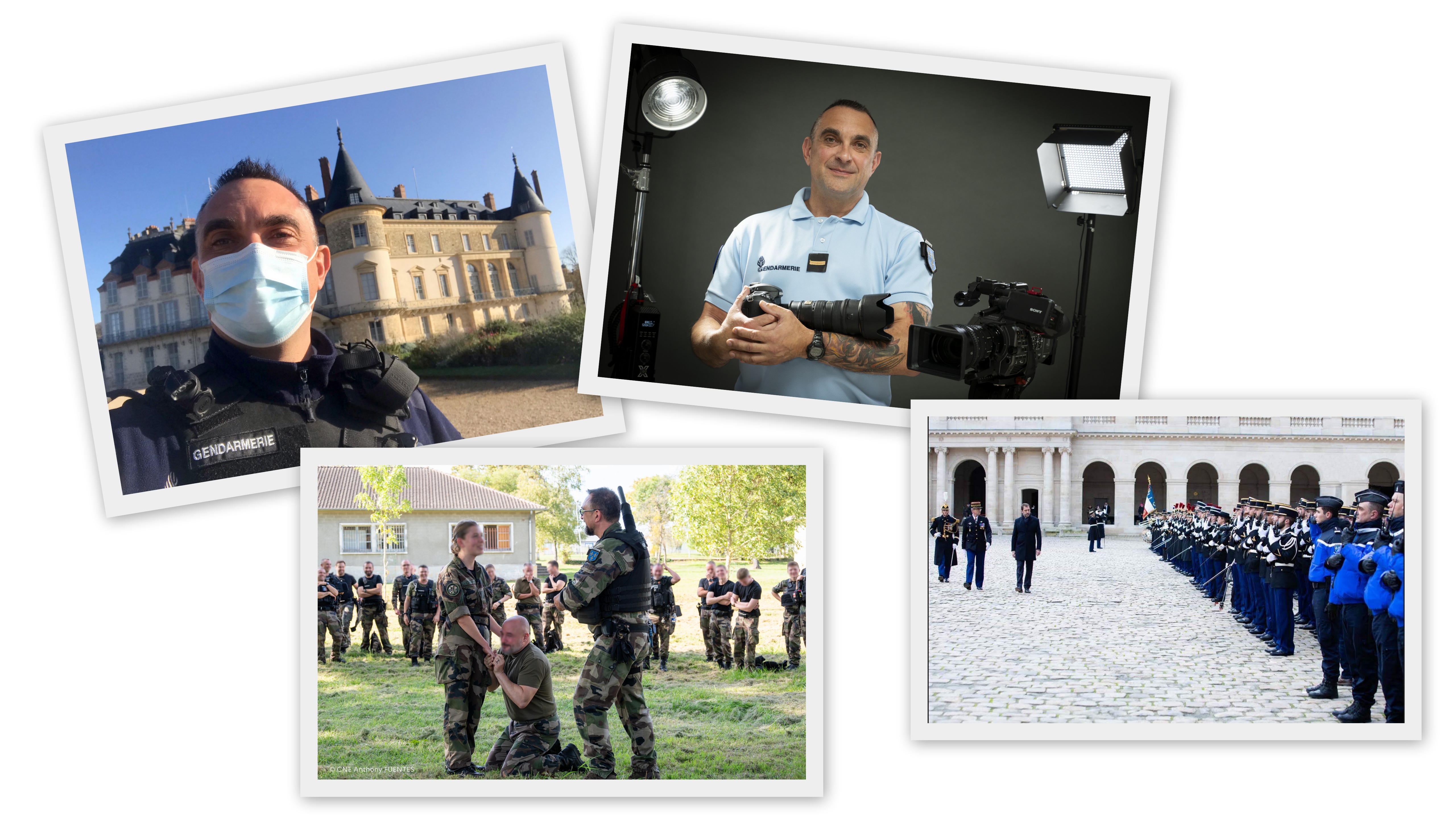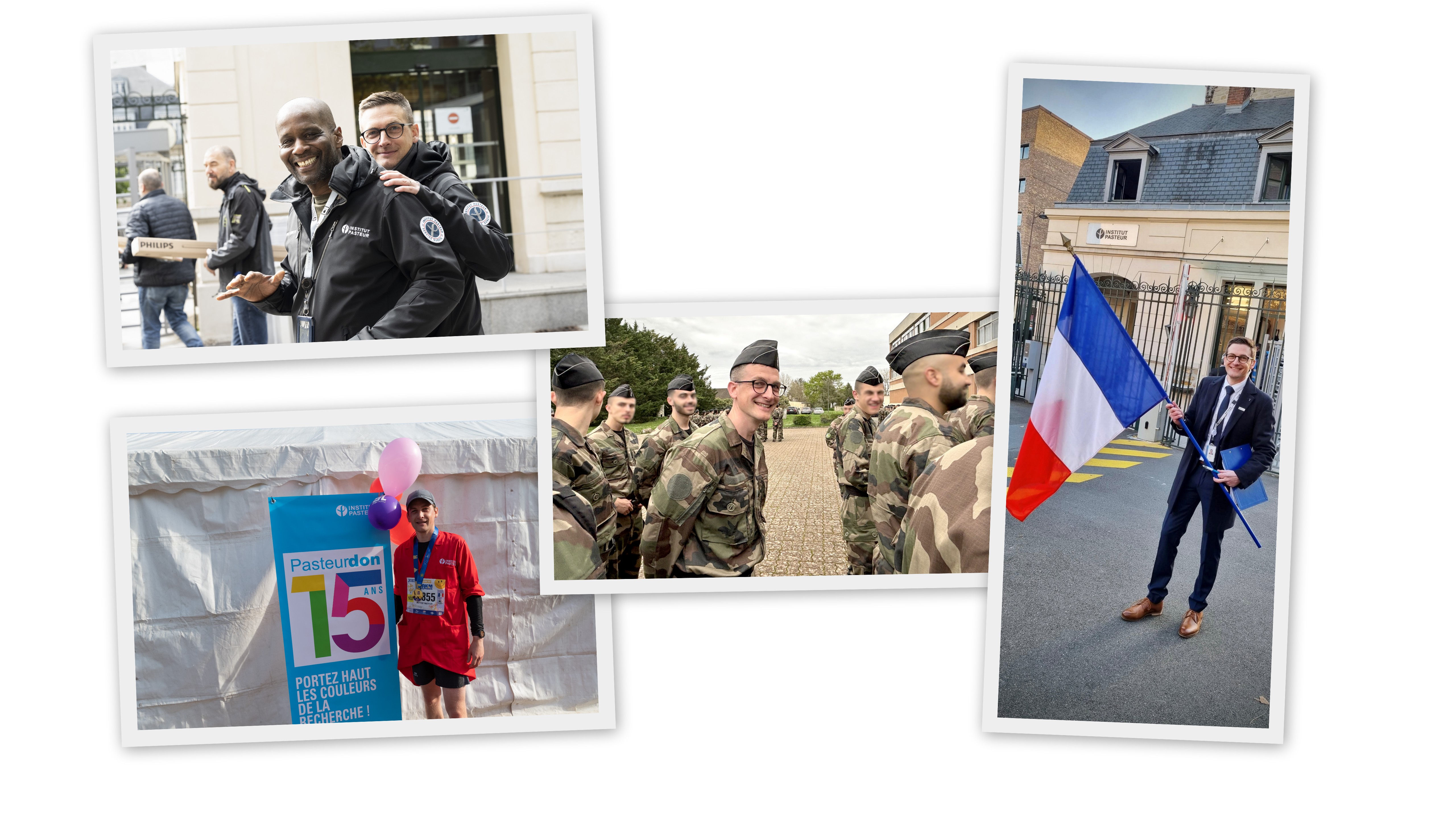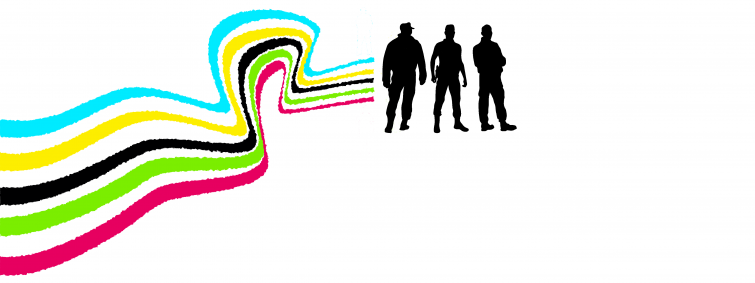
 JO2024
JO2024
Pasteurians and reservists: civic engagement for the local community – and soon for the Olympics!
 Throughout this Olympic summer season, the newsletter team is pleased to present some of the Institut Pasteur staff who are playing a special role in this global event – whether in their capacity as an Institut Pasteur staff member, a volunteer or a sports person. We hope that these profiles will showcase the fantastic diversity of the Institut Pasteur community.
Throughout this Olympic summer season, the newsletter team is pleased to present some of the Institut Pasteur staff who are playing a special role in this global event – whether in their capacity as an Institut Pasteur staff member, a volunteer or a sports person. We hope that these profiles will showcase the fantastic diversity of the Institut Pasteur community.
This week, we want to shine a light on François Gardy, Gauthier Dulary and Pascal Lefrancois – three Institut Pasteur staff committed to public safety as reservists. François and Gauthier will both be on duty during the Olympics.
In a matter of weeks, the eyes of the world will turn to France for the Olympic Games. More than 15 million tourists are expected in the French capital in addition to the local population, and each Olympic venue is preparing to welcome them. First aiders, career police officers or reservists and countless volunteers will all be on hand, lending their skills and expertise to enable everyone to enjoy this unique occasion in a safe and secure environment.
Nearly 10,000 gendarmerie reservists will be on duty all over France during the Olympics. They include two Institut Pasteur staff, who will be donning their reservist's uniform to help protect and safeguard both residents of Greater Paris and the many spectators coming for the Olympics.
 François Gardy, 26 years of civic engagement for the community
François Gardy, 26 years of civic engagement for the community

François' first experience of the gendarmerie was during his compulsory military service, which began in November 1991. He was assigned to the Image Department of the Institut de recherche criminelle de la gendarmerie nationale, the forensic science department of the French National Gendarmerie, in 1992. He enjoyed the experience so much that five years later, alongside his work as a photographer for the Institut Pasteur, he accepted an offer to join the military reserve of the National Gendarmerie – which now has an impressive 30,000 reservists. "I would absolutely recommend signing up! It's a unique experience, both personally and as a way of serving our nation and our fellow citizens. The tasks and roles are extremely varied," he explains.
Doing his civic duty for the community has been a part of François' daily life for 26 years now – it is a long-term commitment that continues to galvanize him, in addition to his career as a photographer. His years in the force have seen him working on a huge variety of missions: supporting units of the departmental gendarmerie, assisting in the fight against terrorism, carrying out airport surveillance, handing over suspects, protecting people and property, and supervising sports events.
After being involved in security for several sports events including the Tour de France and the Paris-Nice road cycling race, this summer François will join 10,000 fellow reservists across France to assist with the Paris Olympics.
For this large-scale event, the task of the gendarmerie reservists in Greater Paris will be public transport security and safeguarding local residents and spectators at the various Olympic venues. In train cars, stations and the surrounding areas, at specific points or on patrol, the aim will be to cover the entire network. It is a mammoth task given the numbers of people expected, with peaks of activity at the opening and closing ceremonies of this global event. For François, who works for the Yvelines departmental gendarmerie unit, tasks may include securing local Olympic sites such as Golf National or the cycling venue.
 Gauthier Dulary, in at the deep end for the Olympics: preparing for the challenge with pride
Gauthier Dulary, in at the deep end for the Olympics: preparing for the challenge with pride
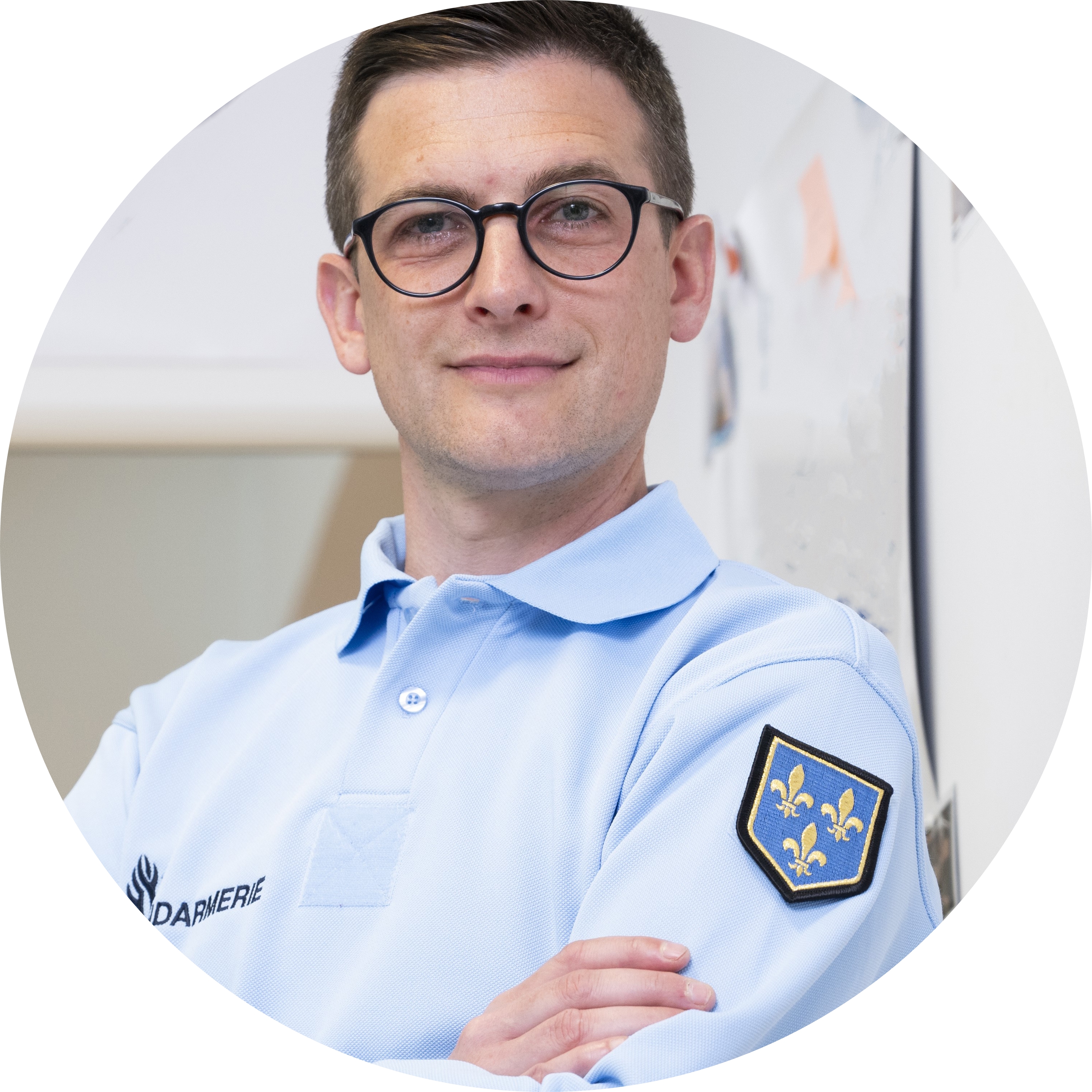 Gauthier has long been involved in first aid, volunteering, civic engagement and public safety. As a volunteer team leader in the French Civil Protection, working night shifts for the emergency services (SAMU) during the COVID-19 crisis and as Head of the Institut Pasteur's Security Department by day, Gauthier is committed to safety and security and has always worked in close contact with the security services. Back in April, he decided to take his community engagement one step further by completing preparatory military training for the gendarmerie to join the operational reserve.
Gauthier has long been involved in first aid, volunteering, civic engagement and public safety. As a volunteer team leader in the French Civil Protection, working night shifts for the emergency services (SAMU) during the COVID-19 crisis and as Head of the Institut Pasteur's Security Department by day, Gauthier is committed to safety and security and has always worked in close contact with the security services. Back in April, he decided to take his community engagement one step further by completing preparatory military training for the gendarmerie to join the operational reserve.
After three intensive weeks of training far from his family, he received his badge at the official ceremony and became a reserve brigadier in the gendarmerie, ready to join his territorial reserve unit and carry out his first missions.
Gauthier's involvement in the Paris Games will not be his very first mission – he was also on duty for the July 14 celebrations –, but he does feel as if the Olympics will plunge him in at the deep end! "The Olympics is unique, it's an event that I will only experience once in a lifetime as a member of the military. It will literally be an extraordinary experience," says Gauthier. "I am proud to take part, really looking forward to it, although I know it will be demanding. Remaining vigilant to ensure the safety of millions of people all day long will require concentration and rigor.” But with the high-level training he has received, Gauthier feels well prepared and ready for the task!
 Being a reservist alongside a paid job: time, energy and personal fulfillment
Being a reservist alongside a paid job: time, energy and personal fulfillment
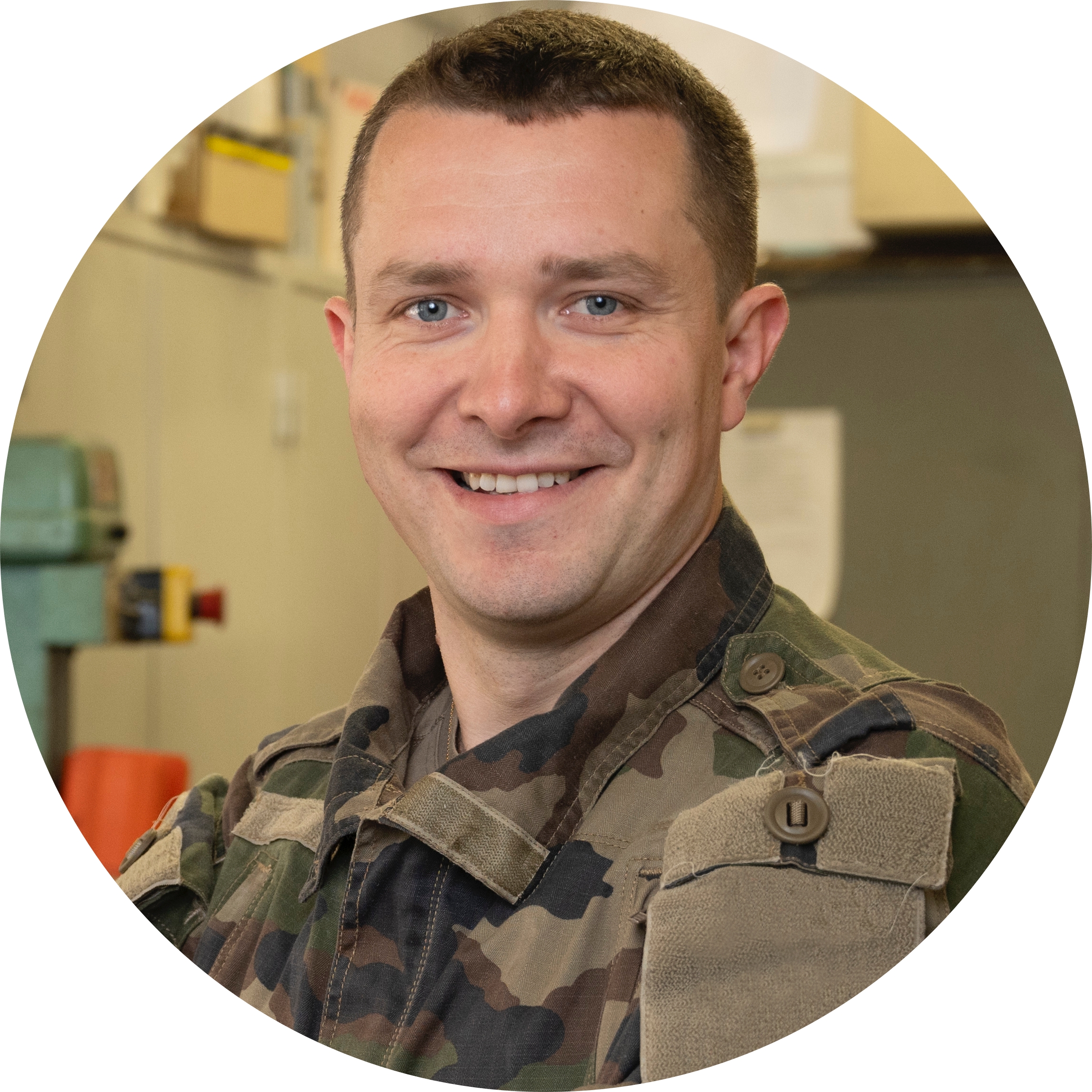 As well as François and Gauthier, other Institut Pasteur staff also work as volunteers in their spare time. The newsletter team had the opportunity to meet another reservist, this time for the army: Pascal Lefrancois, Building Workshop Unit manager. Although Pascal will not be joining his regiment to help safeguard the Olympics, as a corporal (team leader), he remains strongly committed to his work as a reservist. After leaving the armed forces, having signed up at the age of 18, Pascal retrained and joined the Institut Pasteur in 2016 in the Technical Resources and Environment Department (DRTE – now the Department of Corporate Social Responsibility and Technical Resources (DRSE-RT)).
As well as François and Gauthier, other Institut Pasteur staff also work as volunteers in their spare time. The newsletter team had the opportunity to meet another reservist, this time for the army: Pascal Lefrancois, Building Workshop Unit manager. Although Pascal will not be joining his regiment to help safeguard the Olympics, as a corporal (team leader), he remains strongly committed to his work as a reservist. After leaving the armed forces, having signed up at the age of 18, Pascal retrained and joined the Institut Pasteur in 2016 in the Technical Resources and Environment Department (DRTE – now the Department of Corporate Social Responsibility and Technical Resources (DRSE-RT)).
Just over a year ago, Pascal decided to put his past experience to good use by serving the community as a military reservist for the army.
Whether as a reservist for the gendarmerie or the army, François, Gauthier and Pascal all confirm that being a reservist alongside a paid job is a personally rewarding experience – but one which requires a great deal of organization and commitment.
As well as helping the community and supporting career police officers or military personnel, each of them feels that their experience as a reservist is a meaningful part of their lives and a source of fulfillment. As soon as they entered the reserves, each felt a deep sense of fraternity that comes from dealing with adversity together.
"It's incredibly rewarding as it brings out important values like unity and camaraderie. It's a second family [...] – there is a sense of closeness, solidarity," says Pascal.

Over and above their contractual commitments as reservists, they all invest a huge amount of time, in addition to their work at the Institut Pasteur. A reservist with a paid job is entitled to an annual leave of absence of at least ten working days per calendar year to perform their tasks or receive training in the military operational reserve or the national police reserve. Periods spent working in the operational reserve are considered as working time in terms of legal and contractual benefits such as length of service, promotion, paid leave and social security entitlements.
This means that the Institut Pasteur can release François, Gauthier and Pascal for ten days every year to carry out their work as reservists. As well as these ten days, they also spend a good deal of their own free time on their reservist work. Organizational skills, tenacity and stamina are often required, but their passion for what they do takes them a long way. "It is a tiring commitment, but serving others in this way is really motivating," says Gauthier.
What with their work for the safety and security of local citizens and their work to advance science and improve human health, all three have made a choice to spend their lives helping others. It may be a demanding choice, but it is clearly also a source of fulfillment and pride.
Photos: François Gardy/Jean-François Charles/Agnès Bourdet/Valérie Zeitoun/CNE Anthony Fuentes/ Institut Pasteur
